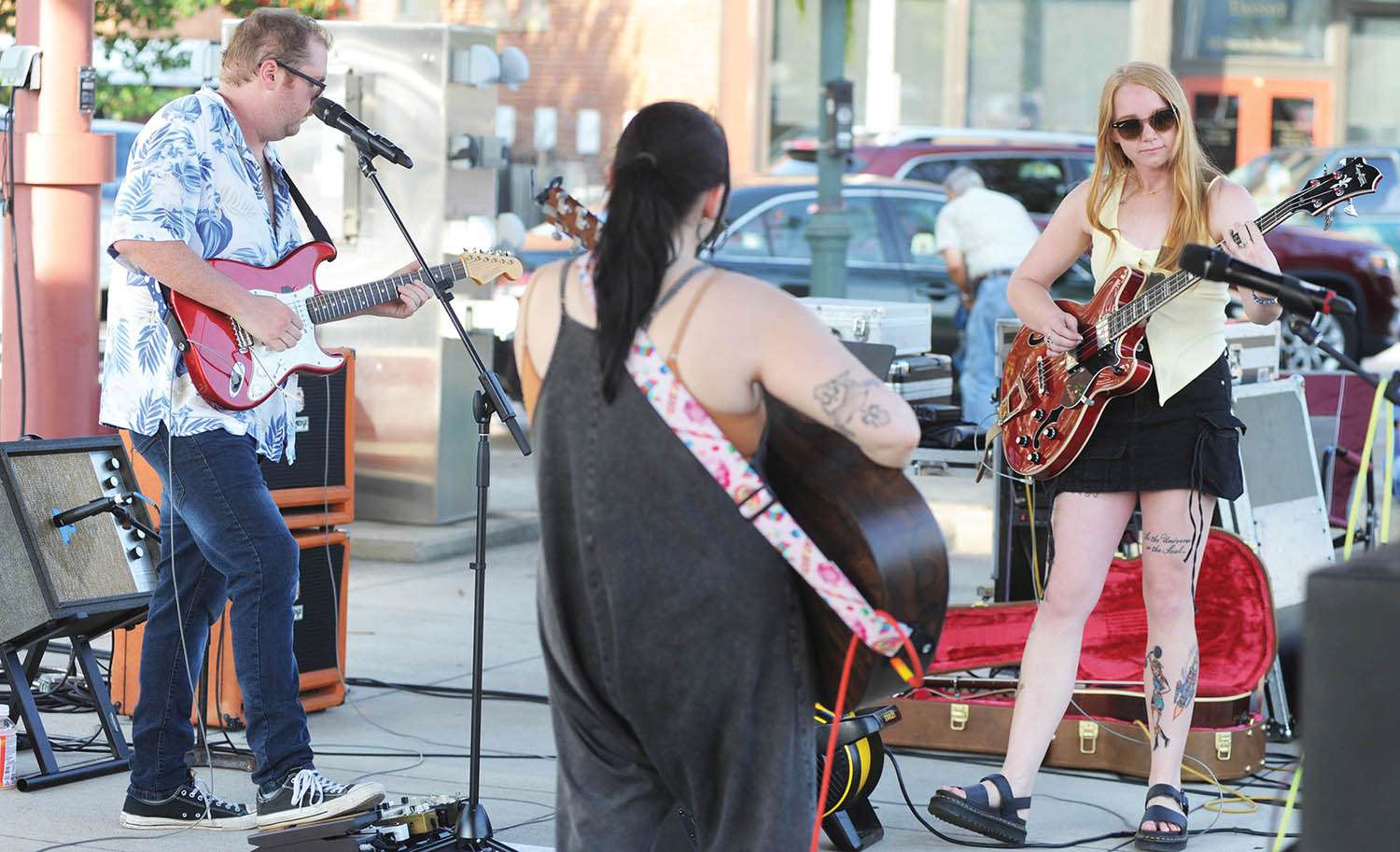Honoring veterans’ sacrifices
Published 10:56 am Friday, March 27, 2009
ELIZABETH TOWNSHIP —With a little bit of research about World War II and the Vietnam War, Rock Hill High School junior Kelsey Huddle put together a prize-winning essay about the youth of today, yesterday and nations abroad.
Huddle took first place in the VFW Post 8850 annual essay contest writing about the benefits modern-day adolescents receive from the service and sacrifice of America’s veterans.
“I just compared (America’s) youth to the youth in other countries,” Huddle said. “Like in Cambodia and Uruguay, youth are recruited for war, unlike in America.”
Trending
She added that U.S. veterans have been more likely to contribute a positive influence on children and young adults than the veterans of foreign countries.
But writing the essay was only the beginning of the process.
At Rock Hill High School, every junior and senior was required to submit an essay on the contest’s topic, not only for the competition, but for a class grade, as well.
From the estimated 150 essays by the upperclassmen, junior and senior English teachers Jeff Hensley and Kim Zornes, respectively, weeded the best essays from the bunch and narrowed the pile to the five final submissions.
Each contestant was also required to orally present their composition with a three to five minute audio recording, which was the method official judges of the competition used to choose the winners. One second over or under and disqualification would be their fate.
Senior Ashton Brammer, and juniors Levi Dalton and Carly Stanford were among the five chosen for submission. And although their teachers commended their tremendous efforts, their essays did not place in the contest. In consolation, the three writers received Rock Hill jackets and duffel bags and $100 savings bonds.
Trending
Huddle and senior Tony Burge were the final two chosen to have their essays submitted, and with Burge’s second place award, the two were the only students in the county who placed in the competition.
But regardless of the research and time put into their writing, Zornes said the students do not really understand the significance of the contest and subject matter until the competition’s official banquet.
With uniformed veterans filling the room, the students were not only surrounded by the very people about whom they were writing, but they stood amid American legends and heroes.
“It was pretty humbling to see all the veterans there,” said Burge, who mentioned in his essay his paternal heritage back to his great-grandfather who had fought for his country. In fact, Burge’s father served two terms in the Gulf War, and his grandfather in World War II.
“I saw your grandfather cry,” Zornes told Burge. “And your dad was beaming from ear to ear.”
Family ties aside, it was Burge’s narrative voice that aided him in achieving second place, Hensley said.
“He was actually better at his presentation than he was on his recording,” Hensley added.
The high schoolers were not the only ones to feel humbled in the presence of the American heroes. Hensley said he understood how the students must have felt standing in front of such a crowd.
“You have all these veterans standing around honoring you,” Hensley said in regard to the students orally presenting their compositions on stage. “Someone was even there two weeks in from Afghanistan.”
And Zornes agreed.
“The students are writing about what they feel as if it is fiction,” she said.
“But when you get (to the banquet) it becomes real.”
And this realization is one of the very reasons Zornes and Hensley require their students to write the essays every year. It isn’t all about fundamental education – it’s about expanding knowledge with culture, as well.
“It’s great for writing and presentation skills,” Zornes said, “but I think they also learn to connect history with society.”
And with next year’s essay theme of “Does America Still Have Heroes?” the education will certainly continue.





